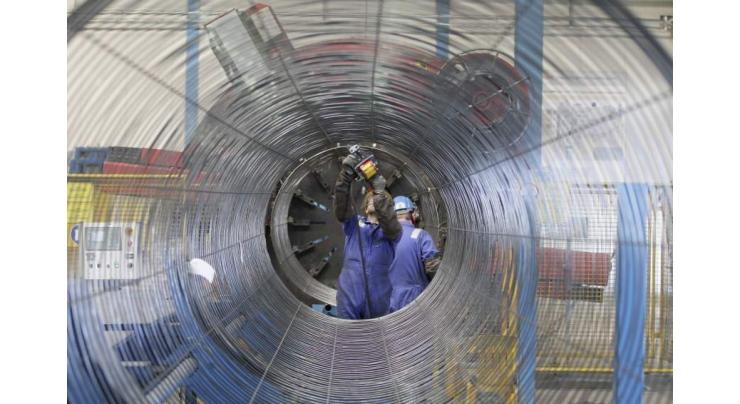
- Home
- Business
- News
- Nord Stream 2 Poses Risks of EU Becoming Overdependent on Russia - EC President-Elect
Nord Stream 2 Poses Risks Of EU Becoming Overdependent On Russia - EC President-Elect
Muhammad Irfan Published July 19, 2019 | 05:11 PM

European Commission President-elect Ursula von der Leyen believes that the Nord Stream 2 gas pipeline project is dangerous for the European Union since it could make the bloc overdependent on Russian energy
MOSCOW (UrduPoint News / Sputnik - 19th July, 2019) European Commission President-elect Ursula von der Leyen believes that the Nord Stream 2 gas pipeline project is dangerous for the European Union since it could make the bloc overdependent on Russian energy.
"There is a danger of heavy dependence on Russian energy. To diversify [Europe's] energy supply, we need other types of energy," von der Leyen said in an interview with the Bild newspaper on Thursday, adding that Europe "needs competition" and must "take into account the interests of its eastern neighbors."
According to von der Leyen, Nord Stream 2 has an "economic and a political dimension."
Earlier in the week, EU lawmakers approved von der Leyen, the now outgoing German defense minister, as the new president of the European Commission. To be elected to the 747-seat European Parliament, von der Leyen needed at least 374 votes and received 383.
She will be the first woman to take on the key EU role when her term starts on November 1.
Nord Stream 2 is a 745-mile-long twin pipeline which will run from Russia to Germany across the Baltic Sea. This is a joint venture between Russian energy giant Gazprom and five European companies: France's ENGIE, Austria's OMV, British-Dutch Royal Dutch Shell, and Germany's Uniper and Wintershall.
The initiative from the start has long drawn opposition from a number of countries, especially Ukraine, which claims that Moscow is planning to deprive Kiev of its gas transition revenues. The United States, which is trying to sell more of its own liquefied natural gas to its overseas allies, insists that the project will make Europe dependent on Moscow. Russia has repeatedly rebuffed the claims, saying that the project is purely economic in nature and seeks to benefit EU energy security.
Related Topics
Recent Stories

Currency Rate In Pakistan - Dollar, Euro, Pound, Riyal Rates On 23 April 2024

Today Gold Rate in Pakistan 23 April 2024

Islam enlightened world with its teachings about knowledge: Dr Jamileh

Record London close as oil prices drop on easing Middle East fears

TV tower in Kharkiv struck as Russia captured village

LCCI language courses from May 1

Governor for service oriented governance in Punjab

Survivors tell of panic at C.Africa river boat disaster

Enrolment campaign, awareness walk held in Lower Chitral

“Say no to plastic- yes to tress” campaign kicks off in Attock

'PML-N secures people's trust in by-polls'

Girl dies as pole falls in street
More Stories From Business
-
Foreign exchange rates
33 minutes ago -
EXCHANGE RATES FOR CURRENCY NOTES
33 minutes ago -

Currency Rate In Pakistan - Dollar, Euro, Pound, Riyal Rates On 23 April 2024
2 hours ago -

Today Gold Rate in Pakistan 23 April 2024
3 hours ago -
Tokyo shares open higher
3 hours ago -
Pakistan commends CIDCA for Continued Support in Economic Development
10 hours ago
-
Macro-economic indicators start showing positive trends in country
10 hours ago -

Record London close as oil prices drop on easing Middle East fears
12 hours ago -

LCCI language courses from May 1
12 hours ago -

Ch. Shafay reviews steps for promotion of technical education
12 hours ago -

Pakistan commends CIDCA for continued support in economic development.
12 hours ago -

Finance Minister advocates collaboration to boost Investment into Pakistan
12 hours ago












